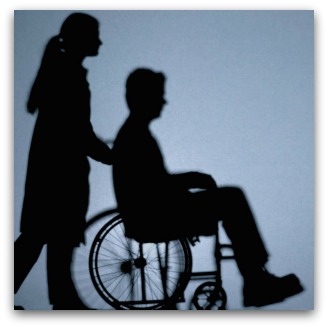Keywords: Disability Services
-

EUREKA STREET TV
- Peter Kirkwood
- 09 March 2012
Prominent lay Catholic leader and public servant Robert Fitzgerald argues that, as lay people now run most of the Catholic educational, health and welfare institutions, this leadership needs more formal recognition from the Church and should be extended further into parish and diocesan roles.
READ MORE 
-

AUSTRALIA
- David Cappo
- 06 March 2012
21 Comments
The Protecting Victoria's Vulnerable Children Inquiry has set a new benchmark. A particular challenge to churches is the recommendation regarding mandatory reporting for clergy and church personnel. Any equivocation on this would be viewed with disdain by the community.
READ MORE 
-

AUSTRALIA
- David Cappo
- 25 January 2012
7 Comments
Due to the prevalence of online opinion and information sharing, access and participation — the pillars of social inclusion — are becoming central to citizens' values. Governments need to be alert, as citizens will increasingly desire a more active role in their system of government.
READ MORE 
-

AUSTRALIA
- Paul O'Callaghan
- 30 November 2011
7 Comments
If you walked into a public service office in the early 1980s, you'd see typing pools, mailrooms and whole floors full of people doing routine clerical work. People with disabilities were disproportionately employed in low level positions. Today, most of those positions have gone.
READ MORE 
-

RELIGION
- Frank Brennan
- 24 August 2011
10 Comments
Factors such as education, housing and connectedness have a big impact on health. There is no point telling an unemployed homeless person: 'Don't smoke, it's bad for you.' It's time the Government made a concerted effort to address the health needs of marginalised groups.
READ MORE 
-

RELIGION
- Frank Brennan
- 24 August 2011
1 Comment
'We need to break down the silo mentality between health, welfare and education. This exists in church agencies as much as elsewhere in society. We must be committed to providing first rate health care to our patients, but also to creating a more equal society.' Text from Frank Brennan's MercyCare Oration.
READ MORE
-

AUSTRALIA
- Moira Byrne Garton
- 12 August 2011
11 Comments
Julia Gillard this week described access to disability services as a 'cruel lottery', and declared support for proposed reforms. Her response demonstrates compassion and goodwill during a time when many citizens have expressed disgust at Labor's treatment of asylum seekers.
READ MORE 
-

AUSTRALIA
- Paul O'Callaghan
- 11 May 2011
7 Comments
The Budget contains a number of positive measures to promote mental health, employment and training. But without greater investment in individualised support for job seekers and those on disability support pensions to assist their transition to work, we are not likely to see major change.
READ MORE 
-

AUSTRALIA
- Lin Hatfield Dodds
- 18 April 2011
6 Comments
Prime Minister Gillard's speech to the Sydney Institute last week, and Tony Abbot’s policy announcements two weeks ago, drew unanimous response from the community sector — that getting people into work is a sound objective, but it's harder than it looks.
READ MORE 
-

RELIGION
- Frank Brennan
- 06 April 2011
7 Comments
We need clever strategic and moral thinkers among our health professionals, who can engage with the demands of an aging population, with the gap in life-expectancy between Aboriginal and non-Aboriginal Australians, and with the increasingly politically correct debate about euthanasia.
READ MORE
-

INTERNATIONAL
- Frank Quinlan
- 03 April 2011
34 Comments
In a recent interview on ABC radio, Abbott argued that work isn't just about the economy, it's also about individual welfare and the social fabric. He's right to point out that the Disability Support Pension focuses too much on what recipients can't do and not enough on what they can.
READ MORE 
-

INTERNATIONAL
- Graham West
- 06 October 2010
9 Comments
Young people should be held accountable for their actions. But that does not explain how almost 80 per cent of those on remand in a detention centre in NSW will not end up with a custodial sentence. If custody is a last resort, how can we get the balance wrong 80 per cent of the time?
READ MORE 